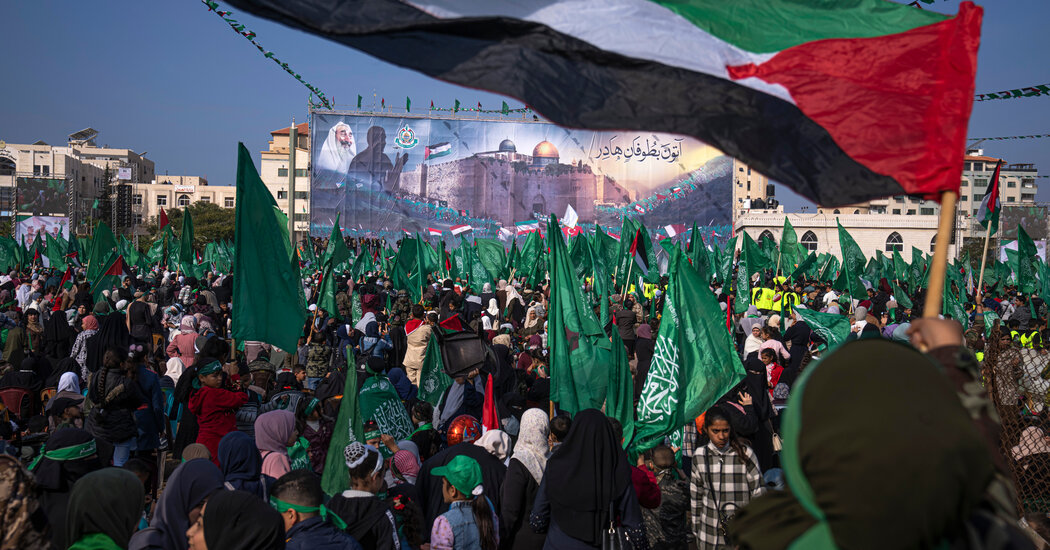The Hamas leader Yahya Sinwar has for years overseen a secret police force in Gaza that conducted surveillance on everyday Palestinians and built files on young people, journalists and those who questioned the government, according to intelligence officials and a trove of internal documents reviewed by The New York Times.
The unit, known as the General Security Service, relied on a network of Gaza informants, some of whom reported their own neighbors to the police. People landed in security files for attending protests or publicly criticizing Hamas. In some cases, the records suggest that the authorities followed people to determine if they were carrying on romantic relationships outside marriage.
Hamas has long run an oppressive system of governance in Gaza, and many Palestinians there know that security officials watch them closely. But a 62-slide presentation on the activities of the General Security Service, delivered only weeks before the Oct. 7 attack on Israel, reveals the degree to which the largely unknown unit penetrated the lives of Palestinians.
. . .
Everyday Gazans were stuck — behind the wall of Israel’s crippling blockade and under the thumb and constant watch of a security force. That dilemma continues today, with the added threat of Israeli ground troops and airstrikes.



When you get conflicting information on a crime scene, you gotta make judgment calls. To not find Israel guilty is being intellectually dishonest and ignoring reality
When the crime scene is a mass grave and you’re getting “conflicting information” from the serial killer’s PR team